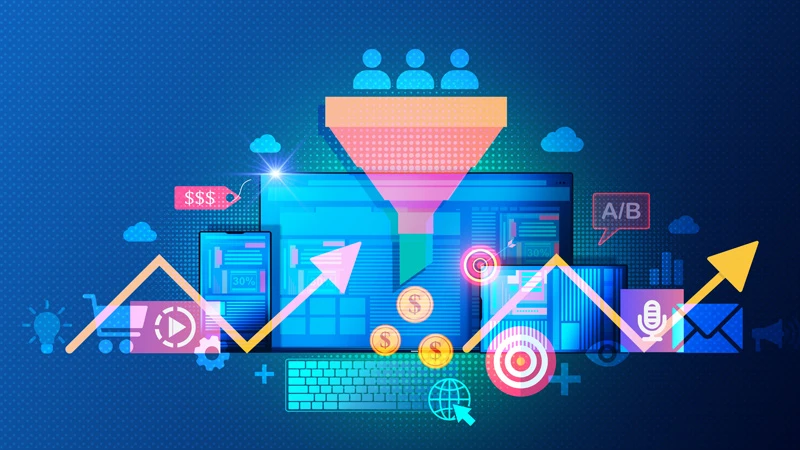Best practices for implementing AI Automation For B2B in your company
Open Effectiveness and Development With AI Automation for B2B Companies
AI automation is transforming the landscape for B2B firms. It enhances procedures and minimizes dependence on human treatment. This shift permits organizations to make quicker, data-driven decisions. As organizations discover which processes to automate, they need to additionally think about the right tools to execute. However, difficulties remain in taking on AI modern technology. AI Automation For B2B. The implications of these changes could shape the future of several companies in means yet to be totally understood
Understanding AI Automation in the B2B Context
As organizations increasingly seek efficiency, comprehending AI automation in the B2B context ends up being necessary. AI automation involves utilizing advanced technologies to simplify procedures, lower human treatment, and boost decision-making procedures. In the B2B landscape, this can manifest in different kinds, such as automating customer support interactions, handling supply chain logistics, or maximizing advertising and marketing campaigns. Business can leverage AI to assess large datasets rapidly, allowing them to determine trends and insights that inform calculated selections. AI systems can incorporate seamlessly with existing innovations, offering a natural platform for handling company features. This understanding lays the foundation for organizations to check out how AI can transform their operations, enhance efficiency, and eventually foster lasting development in an open market.
Trick Benefits of Carrying Out AI Automation

Identifying Procedures Appropriate for Automation

Selecting the Right AI Devices for Your Service
When B2B firms take into consideration automating their processes, choosing the right AI tools ends up being vital for achieving preferred outcomes. Business ought to begin by reviewing their unique needs and objectives, making sure alignment with company objectives (B2B Growth Consulting). Reviewing the integration, flexibility, and scalability capabilities of possible devices is vital, as these elements identify long-term efficiency. Organizations should additionally consider user-friendliness and the degree of support offered by vendors, as these aspects can affect successful implementation. Furthermore, examining consumer reviews and instance research studies can supply insights into how certain AI solutions execute in real-world circumstances. By thoroughly choosing AI devices that fit their operational demands, B2B firms can boost performance and drive development while lessening potential disturbances
Conquering Difficulties in AI Fostering
B2B companies often run into substantial challenges in embracing AI technologies, especially problems associated with data quality and resistance to change administration. Poor information high quality can impede the performance of AI systems, while staff member reluctance to welcome new processes can stall implementation initiatives - AI Automation For B2B. Attending to these obstacles is necessary for effective AI assimilation and optimizing its possible advantages
Information High Quality Issues
Assuring high data top quality is necessary for the successful adoption of AI innovations in business-to-business settings. Incorrect, insufficient, or obsolete information can significantly hinder AI efforts, resulting in erroneous insights and bad decision-making. Companies usually encounter obstacles such as information silos, incongruities throughout various resources, and an absence of standard information styles. To get rid of these problems, companies must invest in data cleaning, integration, and governance procedures. Implementing robust data administration practices ensures that the information fed right into AI systems is dependable and pertinent. Promoting a society of data quality recognition among workers can boost data precision over time. By resolving information quality problems, B2B firms can release the full possibility of AI automation, driving effectiveness and development.
Adjustment Monitoring Resistance

Gauging the Influence of AI Automation
Determining the influence of AI automation in B2B business calls for a clear understanding of key efficiency indicators (KPIs) that straighten with organization objectives. Efficient information evaluation techniques are essential for analyzing the outcomes, while durable ROI analysis methods help determine the economic benefits of automation initiatives. Together, these parts offer a comprehensive framework for assessing AI's contributions to organizational success.
Key Efficiency Indicators
Secret efficiency indicators (KPIs) function as important tools for B2B firms to examine the performance of AI automation initiatives. By developing clear metrics, companies can gauge enhancements in operational performance, price reduction, and income growth directly attributable to automation. Usual KPIs consist of cycle time reduction, mistake prices, consumer contentment ratings, and worker productivity levels. These signs give understandings right into how AI systems are maximizing procedures and enhancing total performance. Additionally, tracking KPIs enables companies to identify locations for additional renovation and to straighten AI automation initiatives with tactical business goals. Inevitably, a well-defined framework of KPIs warranties that B2B firms can quantitatively evaluate the impact of AI automation on their operations and drive continual growth.
Data Evaluation Techniques
Efficient data analysis techniques play an important duty in evaluating the impact of AI automation within B2B companies. By making use of analytical techniques, organizations can identify patterns and patterns in operational information, permitting them to evaluate the effectiveness acquires achieved with automation. Methods such as regression analysis and time series forecasting supply understandings right into how AI-driven procedures influence performance and decision-making. In addition, information visualization tools can successfully communicate findings to stakeholders, facilitating notified calculated decisions. Artificial intelligence algorithms can better enhance evaluation by predicting future end results based on historical data, offering actionable insights. Ultimately, these techniques make it possible for B2B companies to measure success and optimize their AI automation efforts, making certain placement with company purposes and enhancing general efficiency.
ROI Assessment Approaches
Reviewing the roi (ROI) of AI automation is vital for B2B companies looking for to recognize the monetary effects of their technological initiatives. Business can use different ROI assessment approaches to assess the effectiveness of AI applications - AI Automation For B2B. One efficient approach entails computing price savings by comparing functional expenditures before and after automation (Growth Systems For B2B). In addition, determining productivity enhancements through key efficiency indicators (KPIs) aids measure the benefits of AI. Consumer fulfillment metrics can also supply understandings into the effect of automation on service top quality. To ensure a comprehensive evaluation, firms need to think about both direct abstract benefits and economic returns, such as enhanced decision-making capacities and competitive benefit. This complex assessment enables B2B business to make enlightened decisions relating to future investments in AI innovation
Future Fads in AI Automation for B2B Firms
What advancements exist in advance for AI automation in B2B companies? Arising fads indicate a considerable change towards improved information analytics capabilities, allowing organizations to make more educated choices. Anticipating analytics will end up being significantly important, enabling firms to anticipate market changes and client requirements. In addition, the integration of AI with Web of Points (IoT) modern technology is anticipated to streamline operations by offering real-time insights and automation of procedures. Firms will certainly additionally concentrate on improving customer experiences through customized advertising driven by AI formulas. Developments in natural language processing will certainly promote far better interaction in between customers and services. As these patterns develop, B2B companies should adapt to leverage AI automation successfully, ensuring sustained development and affordable advantage.
Regularly Asked Inquiries
What Industries Advantage one of the most From AI Automation in B2B?
Manufacturing, money, medical care, and logistics markets benefit one of the most from AI automation in B2B. These fields utilize AI to enhance processes, enhance decision-making, and improve overall operational effectiveness, driving considerable development and technology.
Just How Does AI Automation Effect Employee Responsibilities and Responsibilities?
AI automation improves worker duties and obligations by enhancing repetitive tasks, enabling workers to concentrate on calculated efforts. This change promotes ability growth, boosts efficiency, and encourages collaboration, ultimately driving organizational growth and technology.
What Are Common False Impressions Concerning AI Automation in B2B?
Typical mistaken beliefs concerning AI automation in B2B include concerns of job loss, ideas that AI can fully change human judgment, and underestimating the importance of collaboration in between AI systems and workers for ideal outcomes.
Exactly How Can Companies Make Certain Data Personal Privacy With AI Automation?
Companies can assure data personal privacy with AI automation by carrying out robust security procedures, sticking to regulatory compliance, carrying out routine audits, and training staff members on information handling techniques to alleviate risks and safeguard sensitive details.
What Are the Prices Connected With Carrying Out AI Automation?
The prices connected with carrying out AI automation consist of software application acquisition, framework upgrades, training employees, recurring maintenance, and potential downtime throughout assimilation. In addition, companies may sustain costs connected to information safety and security and conformity measures.
Gauging the influence of AI automation in B2B firms requires a clear understanding of essential efficiency indications (KPIs) that straighten with business objectives. Trick efficiency indications (KPIs) serve as essential devices for B2B companies to evaluate the effectiveness of AI automation efforts. Efficient information evaluation strategies play an important duty in examining visit this website the impact of AI automation within B2B firms. Reviewing the return on investment (ROI) of AI automation is important for B2B firms seeking to comprehend the monetary implications of their technological campaigns. What developments exist ahead for AI automation in B2B firms?